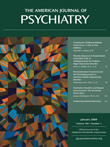The main position of Reading Our Lives is that growing old is the unfolding story by which we understand ourselves and the world. A concept central to the book is that the human experience is a narrative process. Developing and telling our story is how we conceive ourselves as distinctive beings. However, our narrative is changing at every moment and every epoch of our lives. The narrative of our past resides in the present. It is an evolving construction of a story filtered and shaped by our current concerns and by aspirations for the future. “The self we are at any given moment, then, is a complex, dynamic mix of the inside and the outside, of our memories of the past and the reshaping of these memories in light of the present” (p. 27).
The book is based on the postmoderninst tradition and focuses on experienced reality and the process by which it is created, rather than reality existing independent of human perception. In recent years, this position was articulated by Nietzsche, who challenged the value of the assumption of a “real world” on the grounds that humans have no ability to apprehend it. He argued that the “world of appearances” is the only world of which we can have reliable knowledge. Expanding on Nietzsche’s work, deconstructionists and neopragmatists emphasized that experienced reality is not fixed but consists of a continuous discourse validated only by the experiencing persons themselves. Reading Our Lives uses this perspective in conceiving the “self” as an open-ended, never-finished text and explores the processes that make humans perpetual revisers of themselves.
Autobiographical memory is an active process that produces a continuously edited story. If memory retained every detail of every event without editing, humans would have lived a life in disarray. Instead, the fractions of the past are both selected and inseparably connected to meaning and its cognitive (belief system), motivational (value system), and affective (satisfaction) components. We remember what we need in order to “keep the story going.” When an 80-year-old person is asked to remember an event that happened in her 20-year-old self, the act of retrieval has a formative impact upon what is retrieved.
Neurobiological concepts of recollection support the view that the self that constructs the past is changed by the outcome of its own construction
(1) . The brain does not hold carbon copies of past events stored in a specific brain structure. Recalled images are fleeting, reconstructed images generated by transient synchronous activation of neural firing patterns corresponding to past perceptual representations. What the brain stores are dispositional representations serving as potential patterns of neuronal activity in convergent, small ensembles of neurons located in high-order association cortices, in the basal ganglia, and in limbic structures. What dispositional representations store in their synapses is not a picture itself, but the means to constitute a picture. The constituted picture depends on the current context provided by high order cortices.
Aging invites us to read our lives more fully and to tie memory and meaning tightly. Wisdom is the extension of this tie and consists of a continuous transformation of self-knowing and awareness that includes awareness of awareness. A wise person is one who seeks to live a strong life story—a story that makes sense—and is open to change and tolerant of ambiguity. Wise is the person who sees his or her life story with “irony,” understands that there is more than one story behind each event, and feels comfortable with this fragmentation. Finally, wisdom extends self-knowledge to concerns with others.
Both meaning and the meaning making process change throughout life. But the narrative formation process can be prematurely foreclosed. Narratives of a powerful life experience (e.g., fighting in the Vietnam War) may constrict the rest of an individual’s narratives. Narratives can become disjointed when the individual cannot assimilate certain experiences. Adversity can disrupt a narrative, leaving the person in a narrative incoherence. Old age is full of such experiences. A disability can deprive an old person from meaningful life experiences, death can take away one’s most important confidant, and terminal illness can be a death sentence to one’s narrative as much as to one’s life.
In late life, like in any story, characters either die or impart their message and lose their usefulness. Death presents the person with the task of assimilating his or her message into his or her story. When successful, this assimilation promotes openness and hope. Life review can help a person to outgrow his or her life story and let go. When successful, this process leads to “gerotranscendence” and shifts the individual’s perspective from a self-centered one to one with affinity with the past, present, and coming generations.
By focusing on the narrative process, Reading Our Lives offers a philosophically grounded and neurobiologically sound perspective for examining late life. As such, it challenges the reader to bring this perspective to bear in understanding and helping the elderly patient.

